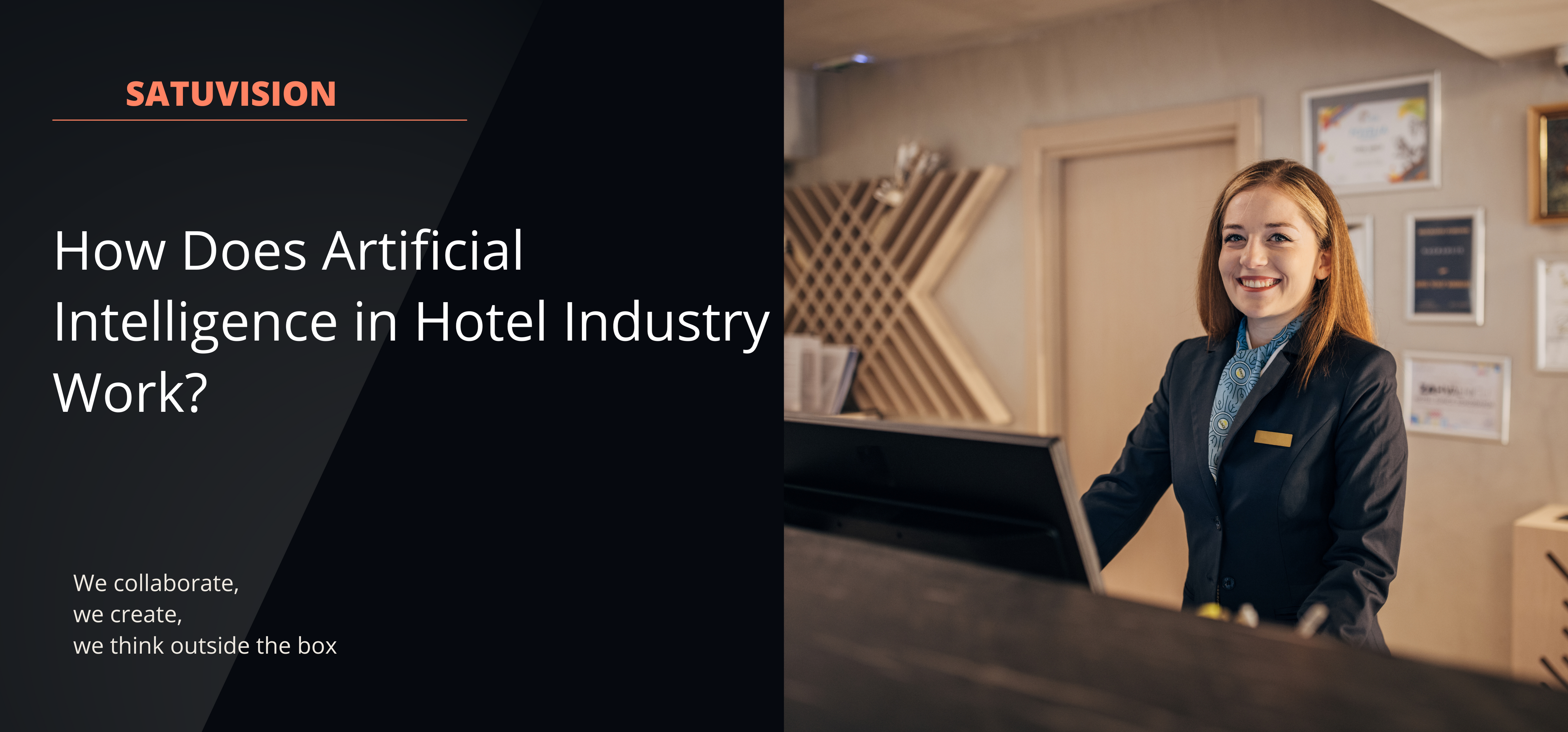The advancements, in technology have had an impact on aspects of our lives including the way we travel and enjoy hospitality. One area that has seen transformation is the hotel industry thanks to the introduction of intelligence (AI). Integration of artificial intelligence in hotel industry, not boosts efficiency but also revolutionizes guest experiences like never before.
Table of Contents
What is artificial intelligence in the hospitality industry?
Before we start discussing the details of how artificial intelligence in hotel industry work, let’s first establish what it entails. Artificial intelligence, in terms, is the imitation of intelligence, in machines that are designed to think and carry out tasks that usually require human comprehension. These machines have the ability to learn from data use reasoning and even to some extent understand their environment.
Read more: Master the Art of Automation: 4 Key Benefits of ChatGPT for Hotel Owner
What are the roles of artificial intelligence in hotel industry?
Smart Rooms
Imagine entering a hotel room that automatically adjusts itself to suit your preferences. From the temperature and lighting to the type of music you prefer. This isn’t something out of a sci-fi movie; it’s happening today. AI-powered smart rooms are customizing guest experiences based on preferences ensuring their stay is absolutely perfect.
Chatbots and Virtual Assistants
If you’ve recently interacted with a hotel’s website or customer service chances are you’ve encountered a chatbot. These AI-driven assistants provide responses to queries handle bookings and even offer recommendations. They’re available around the clock ensuring guests receive assistance whenever they need it.
Predictive Analysis
Thanks to AI technology hotels now have the ability to analyze guest data and feedback in order to predict behaviors and preferences. This predictive capability allows hotels to tailor their services and offers resulting in levels of customer satisfaction and loyalty.
Operational Efficiency
From managing inventory to conserving energy artificial intelligence is revolutionizing hotel operations. AI algorithms can anticipate when a room will be occupied and adjust heating or cooling systems accordingly resulting in savings, on energy consumption and costs.
Personalized Marketing
Artificial intelligence in hotel industry can analyze guest data and create targeted marketing campaigns. For promotions, guests receive customized offers based on their preferences and past behaviors, which increases the likelihood of conversions.
Read more: How to Use ChatGPT Prompts for Real Estate Professional + Tips [2023]
What are the benefits of incorporating artificial intelligence in hotel industry?
Enhanced Guest Experience
As mentioned earlier one of the advantages of using artificial intelligence in hotel industry is its ability to tailor services to preferences. This ensures that each guest has an exceptional experience. With AI hotels can anticipate guests’ needs. Proactively cater to them.
Cost Efficiency
By automating processes and optimizing energy management hotels can significantly reduce costs.
Increased Revenues
Through marketing and improved guest experiences hotels often see an increase, in repeat stays and bookings. Additionally, AI’s predictive analysis can assist in dynamic pricing strategies ensuring that rooms are priced optimally based on demand.
Read more: Google Business Profile for Hotel: A Ultimate Guide (2023)
What are the challenges to implementing AI in the hospitality industry?
Integrating artificial intelligence in hotel industry poses challenges despite the numerous benefits it offers. One of these challenges is the investment required for AI technology. Additionally, there is a learning curve that staff members need to overcome when adapting to AI systems. It’s important to find the balance between relying on technology and maintaining experiences for guests.
Read more: 5 Actionable Strategies to Make Your Villa in Bali Stand Out
What are the roles of artificial intelligence in hotel industry?
The utilization of AI in the hospitality industry is still in its stages. As this technology continues to advance we can anticipate an array of experiences, operations, and groundbreaking services. Just imagine the convenience of facial recognition systems that expedite check-ins or AI-powered concierge services that curate your itinerary based on your preferences. The possibilities are truly endless. It’s important to consider that as AI becomes more commonplace within hotels guests will come to expect these enhanced experiences, as the norm. Hotels that don’t embrace these advancements may find themselves at a disadvantage.
Read more: Ultimate Guide: Google Analytics for Hotels Business Success (GA4)
Conclusion
The hotel industry is going through a transformation, with the inclusion of intelligence. Like any technology, there are hurdles to overcome. However, the advantages it brings to both hotels and their guests are undeniable. In an industry that creates experience, key AI provides a chance to create customized and memorable stays for every guest. Embracing this technology isn’t about staying up to date; it’s about paving the way, for the future of hospitality.
Frequently Asked Questions
AI can also be used to optimize labor management and scheduling by projecting demand and modifying staffing levels accordingly, resulting in more efficient use of hotel resources. AI can also be used to analyze and provide feedback on employee performance, identify training needs, and track employee engagement.
Tasks may be shared and distributed between humans and machines depending on the particular skill set they offer. Ultimately, the human touch can never be replaced by a machine. For that reason, the hospitality sector will almost certainly be one of partial automation.
That was a complete explanation of how artificial intelligence in hotel industry work. Read more of our blogs about the challenges faced in the hospitality industry, especially digital marketing!





